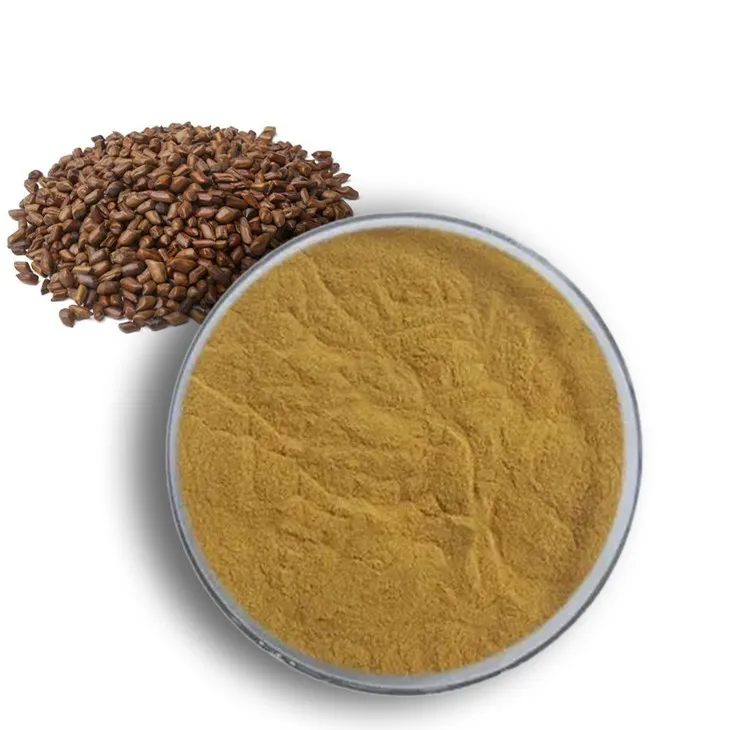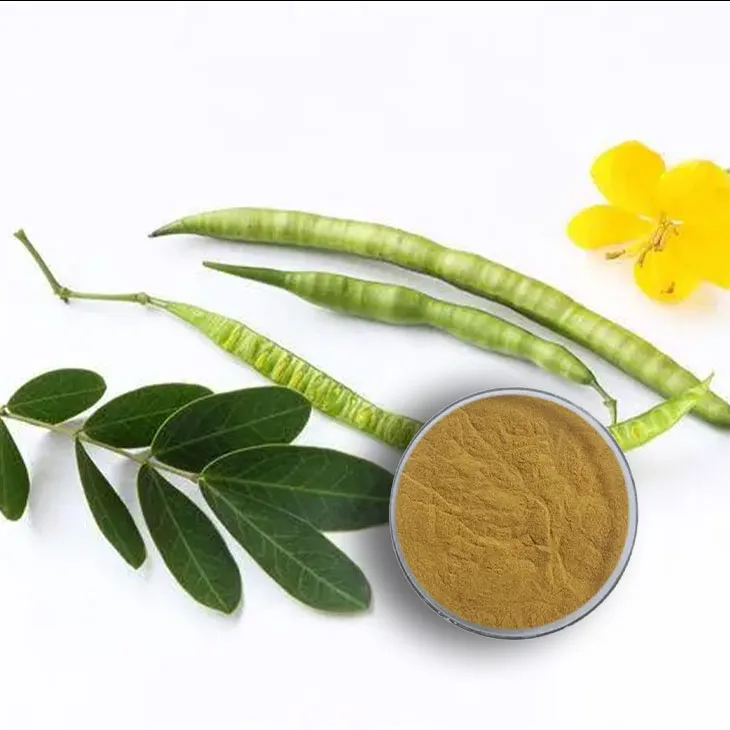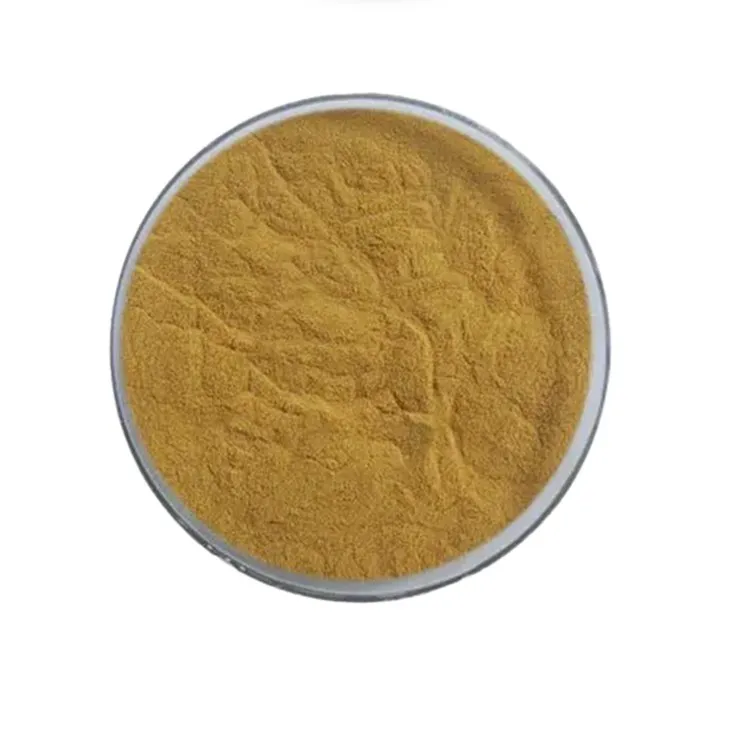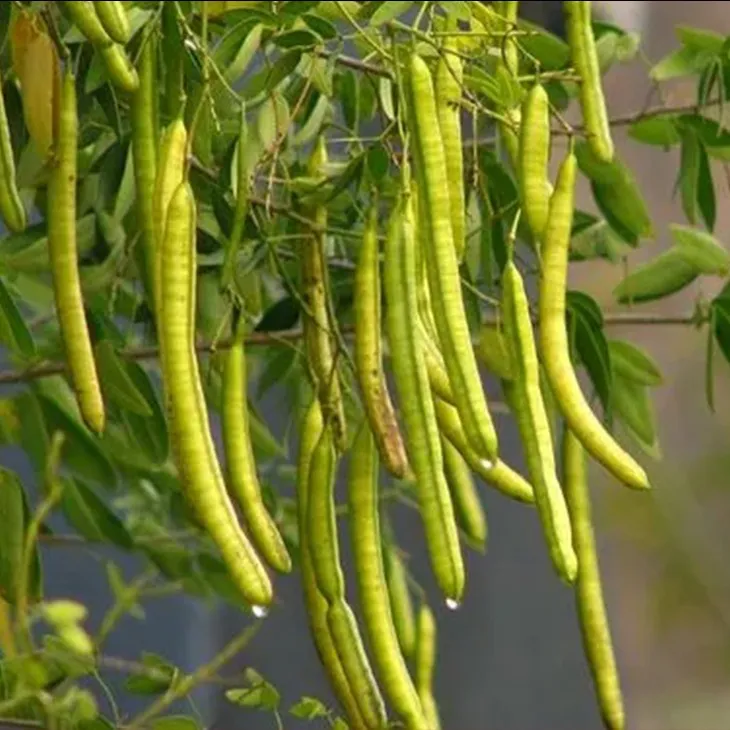- 0086-571-85302990
- sales@greenskybio.com
Expert Tips for Effective Wholesale Purchasing of Cassia Seed Extract.
2024-12-13

1. Introduction
Cassia obtusifolia extract has gained significant popularity in various industries, including pharmaceuticals, cosmetics, and food supplements. For wholesalers, making effective purchases of this extract is crucial to ensure quality products, good profit margins, and customer satisfaction. This article will provide comprehensive expert tips on how to achieve successful wholesale procurement of Cassia obtusifolia extract.

2. Quality Assessment
2.1. Understanding the Active Components
Cassia obtusifolia extract contains various bioactive components such as anthraquinones, flavonoids, and tannins. Anthraquinones, for example, are important for their potential laxative and antioxidant properties. Wholesalers should be familiar with these components and their expected levels in a high - quality extract. Suppliers should be able to provide detailed information about the composition of their Cassia obtusifolia extract, including the percentage of these active components. This information can be used to compare different products and ensure that the purchased extract meets the required quality standards.
2.2. Purity and Contaminants
The purity of the Cassia obtusifolia extract is of utmost importance. Wholesalers need to check for the presence of contaminants such as heavy metals (e.g., lead, mercury, cadmium), pesticides, and microbial contaminants. High - quality extracts should be free from these harmful substances. Laboratory testing is often necessary to verify the purity of the extract. Suppliers should have proper quality control measures in place to ensure that their products are pure. Wholesalers can request certificates of analysis from suppliers to confirm the absence of contaminants.
2.3. Appearance and Odor
The physical characteristics of the extract can also provide clues about its quality. A high - quality Cassia obtusifolia extract typically has a uniform color and texture. For example, it may be a dark brown powder with a fine texture. Unusual discoloration or a lumpy texture could indicate problems with the extraction process or storage conditions. Additionally, the odor should be characteristic of Cassia obtusifolia, without any off - putting or rancid smells. If possible, samples should be examined for these physical characteristics before making a large - scale wholesale purchase.

3. Supplier Selection
3.1. Reputation and Experience
When choosing a supplier for Cassia obtusifolia extract, their reputation and experience in the industry are key factors. Look for suppliers with a long - standing history of producing and supplying high - quality extracts. A good reputation can be determined by checking online reviews, industry forums, and references from other customers. Suppliers with years of experience are more likely to have refined their production processes and quality control measures, ensuring a consistent supply of quality products. For example, a supplier that has been in the business for over a decade may have a better understanding of the nuances of Cassia obtusifolia extraction compared to a newly established company.
3.2. Certifications and Compliance
Suppliers should hold relevant certifications such as Good Manufacturing Practice (GMP) certification. GMP ensures that the manufacturing processes are carried out in a controlled and hygienic environment, following strict quality standards. Additionally, compliance with international regulations such as those related to food safety (e.g., FDA regulations in the United States for products intended for food supplement use) is essential. Wholesalers should verify that the supplier's products are compliant with the regulations of the target market. For instance, if the Cassia obtusifolia extract is to be sold in the European Union, it must meet the EU's strict regulations regarding herbal extracts.
3.3. Production Capacity and Scalability
It is important to consider the supplier's production capacity and scalability. A supplier with a large production capacity can meet the wholesaler's potentially large - scale demands, especially during peak seasons or when there is a sudden increase in market demand. Scalability is also crucial as the wholesaler's business may grow over time. A supplier that can easily scale up their production without sacrificing quality is a valuable partner. For example, a supplier with modern manufacturing facilities and a flexible production line can adjust their output according to the wholesaler's needs.
3.4. Research and Development Capabilities
Suppliers with strong research and development (R&D) capabilities can offer added value. They may be able to develop new and improved forms of Cassia obtusifolia extract, such as more concentrated or more bioavailable versions. R&D - driven suppliers can also stay ahead of industry trends and regulatory changes. For example, they may be researching ways to make the extraction process more environmentally friendly or to enhance the therapeutic properties of the extract. Wholesalers can benefit from partnering with such suppliers as they can offer innovative products that may have a competitive edge in the market.

4. Cost - Effectiveness
4.1. Price Comparison
When aiming for cost - effective wholesale purchases of Cassia obtusifolia extract, price comparison is a fundamental step. Wholesalers should obtain quotes from multiple suppliers and compare not only the unit price but also the overall cost considering factors such as minimum order quantities, shipping costs, and any additional fees. For example, Supplier A may offer a lower unit price but has a high minimum order quantity, while Supplier B may have a slightly higher unit price but more flexible order quantities and lower shipping costs. By carefully analyzing these factors, wholesalers can make a more informed decision on which supplier offers the best overall value.
4.2. Volume Discounts
Most suppliers offer volume discounts. Wholesalers should negotiate with suppliers to obtain the best possible volume discounts. The larger the order quantity, the greater the potential discount. However, it is important to ensure that the quality of the product is not compromised in pursuit of a lower price. For example, a wholesaler may be able to secure a significant discount by doubling their order quantity, but they should still verify that the extract meets all quality requirements.
4.3. Long - Term Contracts
Entering into long - term contracts with suppliers can often lead to cost savings. Long - term contracts provide stability for both the wholesaler and the supplier. Suppliers may be more willing to offer favorable prices and terms in exchange for a guaranteed long - term business relationship. Wholesalers should carefully consider the terms of the long - term contract, including price adjustment clauses in case of market fluctuations, quality control requirements, and delivery schedules. For instance, a three - year long - term contract may include a provision for a maximum 5% annual price increase based on inflation or raw material cost changes.

5. Logistics and Shipping
5.1. Packaging
The packaging of Cassia obtusifolia extract is crucial for its quality during shipping and storage. High - quality packaging should be moisture - proof, light - resistant, and durable. For example, the extract may be packaged in sealed aluminum - lined bags to protect it from moisture and air, which can cause degradation. Wholesalers should ensure that the supplier uses appropriate packaging materials. Additionally, proper labeling on the packaging is necessary, including information such as the product name, batch number, expiration date, and ingredients list.
5.2. Shipping Methods
Choosing the right shipping method is important for cost and product integrity. Options include air freight, sea freight, and land transportation. Air freight is generally faster but more expensive, while sea freight is slower but more cost - effective for large quantities. Land transportation may be suitable for shorter distances or for domestic shipments. Wholesalers need to consider factors such as the urgency of delivery, the quantity of the extract, and the cost when selecting a shipping method. For example, if the extract is needed urgently for a production run, air freight may be the best option despite the higher cost.
5.3. Storage Requirements
Cassia obtusifolia extract has specific storage requirements. It should be stored in a cool, dry, and dark place to maintain its quality. Wholesalers should ensure that their storage facilities meet these requirements. Temperature - controlled storage may be necessary in some cases, especially in regions with extreme climates. Additionally, proper inventory management is essential to avoid over - storage or under - storage, which can lead to product degradation or stock - outs respectively.
6. Quality Control during the Purchasing Process
6.1. Sampling and Testing
Before making a wholesale purchase, it is essential to take samples of the Cassia obtusifolia extract and have them tested. Sampling should be done in a representative manner to ensure that the test results accurately reflect the quality of the entire batch. Laboratory tests can include assays for the active components, purity tests for contaminants, and physical property evaluations. If the test results do not meet the expected quality standards, the wholesaler should either reject the batch or negotiate with the supplier for corrective actions.
6.2. Batch Traceability
Ensuring batch traceability is an important part of quality control. Suppliers should be able to provide detailed information about the origin of the raw materials, the production date and batch number of the extract, and any processing steps involved. This information allows wholesalers to track the product in case of any quality issues or recalls. For example, if a quality problem is discovered in a particular batch of Cassia obtusifolia extract, the wholesaler can quickly identify all the products that contain that batch and take appropriate action.
7. Conclusion
Effective wholesale purchasing of Cassia obtusifolia extract requires a comprehensive approach that encompasses quality assessment, supplier selection, cost - effectiveness, logistics, and quality control. By following the expert tips outlined in this article, wholesalers can make informed decisions and ensure that they obtain high - quality Cassia obtusifolia extract at a competitive price, while also maintaining good relationships with suppliers and meeting the needs of their customers.
FAQ:
Q1: How can we assess the quality of Cassia obtusifolia extract in wholesale purchasing?
When assessing the quality of Cassia obtusifolia extract in wholesale purchasing, several factors should be considered. Firstly, check the purity of the extract. High - quality Cassia obtusifolia extract should have a relatively high content of active ingredients, which can be determined through laboratory analysis. Secondly, look at the appearance. It should be free from impurities, with a uniform color and texture. Thirdly, consider the source of the raw materials. Extracts from well - sourced and properly cultivated Cassia obtusifolia are more likely to be of high quality. Also, check for any certifications or quality standards that the product complies with, such as GMP (Good Manufacturing Practice) certifications.
Q2: What are the key factors in selecting a reliable supplier for Cassia obtusifolia extract?
When choosing a reliable supplier for Cassia obtusifolia extract, reputation is crucial. Look for suppliers with a good track record in the industry, positive customer reviews, and a long - standing presence in the market. Supplier experience matters; those with years of experience in handling Cassia obtusifolia extract are more likely to provide quality products. Another factor is the production capacity. A supplier with sufficient production capacity can ensure timely delivery of large - scale wholesale orders. Quality control measures of the supplier are also important. They should have strict quality control procedures in place to ensure the consistency and quality of the extract. Additionally, consider the supplier's compliance with relevant regulations and standards.
Q3: How can one ensure cost - effectiveness in wholesale purchasing of Cassia obtusifolia extract?
To ensure cost - effectiveness in wholesale purchasing of Cassia obtusifolia extract, comparison shopping is essential. Obtain quotes from multiple suppliers and compare their prices, but don't base your decision solely on price. Consider the quality and reputation of the supplier as well. Buying in larger quantities often leads to lower unit costs, but make sure you can manage the inventory without incurring additional costs such as storage fees. Negotiate with suppliers for better prices, especially if you are a regular or large - volume customer. Also, look for any promotions or discounts that suppliers may offer from time to time.
Q4: Are there any legal regulations to be aware of when wholesaling Cassia obtusifolia extract?
Yes, there are several legal regulations to be aware of when wholesaling Cassia obtusifolia extract. In many regions, it is regulated as a dietary supplement or herbal product. Suppliers need to comply with food safety and quality regulations. There may be restrictions on the use of certain solvents during extraction, and strict labeling requirements. For example, the label should accurately state the ingredients, the origin of the extract, and any potential allergens. Additionally, import and export regulations may apply if the product is being traded across international borders.
Q5: How can one test the authenticity of Cassia obtusifolia extract?
Testing the authenticity of Cassia obtusifolia extract can be done through various methods. One common approach is spectroscopic analysis, which can identify the characteristic chemical fingerprints of the extract. Chromatographic techniques, such as HPLC (High - Performance Liquid Chromatography), can be used to separate and analyze the components of the extract, ensuring that it contains the expected active ingredients. DNA testing can also be applied in some cases to confirm the source of the raw material. Additionally, comparing the physical and chemical properties of the sample with known standards of authentic Cassia obtusifolia extract can help in determining its authenticity.
Related literature
- Cassia Obtusifolia: Properties, Extraction, and Applications"
- "Quality Control in Herbal Extract Production: The Case of Cassia Obtusifolia"
- "Wholesale Procurement Strategies for Botanical Extracts: Focus on Cassia Obtusifolia"
- ▶ Hesperidin
- ▶ citrus bioflavonoids
- ▶ plant extract
- ▶ lycopene
- ▶ Diosmin
- ▶ Grape seed extract
- ▶ Sea buckthorn Juice Powder
- ▶ Beetroot powder
- ▶ Hops Extract
- ▶ Artichoke Extract
- ▶ Reishi mushroom extract
- ▶ Astaxanthin
- ▶ Green Tea Extract
- ▶ Curcumin Extract
- ▶ Horse Chestnut Extract
- ▶ Other Problems
- ▶ Boswellia Serrata Extract
- ▶ Resveratrol Extract
- ▶ Marigold Extract
- ▶ Grape Leaf Extract
- ▶ blog3
- ▶ Aminolevulinic acid
- ▶ Cranberry Extract
- ▶ Red Yeast Rice
- ▶ Red Wine Extract
-
Polygonum Cuspidatum Extract
2024-12-13
-
Withania Somnifera Extract
2024-12-13
-
Avocado Extract Powder
2024-12-13
-
Alfalfa Meal
2024-12-13
-
Tongkat Ali Extract
2024-12-13
-
Black Garlic Extract
2024-12-13
-
Beetroot Powder
2024-12-13
-
American Ginseng Root Extract
2024-12-13
-
Sugarcane Extract
2024-12-13
-
Phellodendron Extract
2024-12-13





















